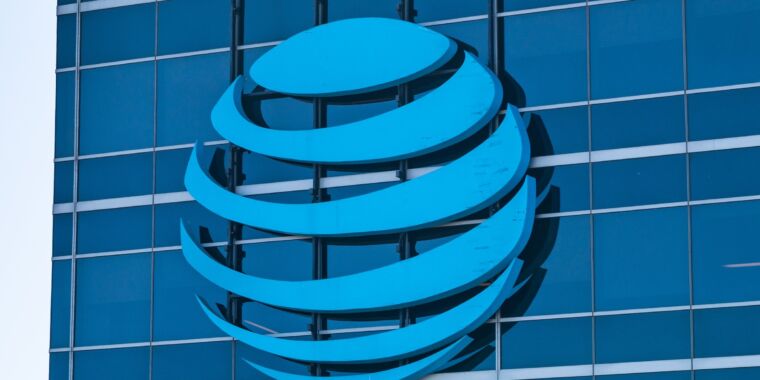A mistrial was declared today in the trial of former AT&T Illinois President Paul La Schiazza, who was accused of bribing a powerful state lawmaker’s ally in order to obtain legislation favorable to AT&T’s business.
“The jury report they have reached an impasse and cannot reach a unanimous verdict. For the reasons stated on the record, the court declares a mistrial,” US District Judge Robert Gettleman wrote in an order today after the trial in the Northern District of Illinois.
La Schiazza could be tried again. AT&T itself agreed to pay a $23 million fine in 2022 to resolve a federal criminal investigation into alleged misconduct involving efforts to influence former Illinois Speaker of the House Michael Madigan. AT&T “admitted that in 2017 it arranged for an ally of Madigan to indirectly receive $22,500 in payments from the company,” the Justice Department said in October 2022.
The payment to former state Rep. Edward Acevedo was designed to influence a 2017 vote on Carrier of Last Resort (COLR) legislation that “terminate[d] AT&T Illinois’ costly obligation to provide landline telephone services to all Illinois residents,” AT&T’s deferred prosecution agreement said.
“Intent” required
Madigan was indicted on federal racketeering and bribery charges in 2022 and is scheduled to go on trial in October. After La Schiazza’s mistrial was declared, “Gettleman told the lawyers in the case to return to his courtroom Tuesday to discuss next steps. Any retrial would almost certainly take place after Madigan himself goes on trial beginning early next month,” the Chicago Tribune wrote.
On Wednesday, the jury reportedly sent the judge a note that said, “The government indicates that for a bribe there only needs to be ‘intent’ and no exchange. Is this consistent with the law?”
As the Tribune article stated, “This question seemed to hit at the heart of the case. Gettleman called the jury back out and reread several pages of the jury instructions dealing with the elements of the bribery counts, then urged them to read it again back in the jury room.”
The 46-page jury instructions said that bribery is committed when a person gives, offers, or agrees to give things of value to another person and does so corruptly with the intent to influence or reward an agent of state government in exchange for an official act related to some business or transaction.
La Schiazza faced a bribery charge and a conspiracy to commit bribery charge. He also faced three charges of using an interstate facility in aid of unlawful activity. The interstate facility was email.
US: Defendant “paid for the result he wanted”
In one internal email sent to an AT&T employee, La Schiazza allegedly described the company’s arrangement with Madigan as “the friends and family plan.” La Schiazza and other AT&T employees also discussed in emails their desire to “get credit” for the bribe payment, the government said. Acevedo was paid “for supposed consulting services” but in reality “did no work in return for the payments,” the government said.
La Schiazza did not testify. In closing arguments on Tuesday, Assistant US Attorney Sushma Raju said that instead of “a fair, transparent and honest legislative process,” the people of Illinois received “a legislative process that was tainted by this defendant, who paid for the result he wanted. It was not lobbying… it was a crime and Paul La Schiazza knew it,” according to the Tribune.
Defense attorney Tinos Diamantatos reportedly told the jury that the COLR legislation “took years of legitimate, tireless hard work,” and “It was a team effort by AT&T to get something done lawfully and appropriately as the law allows them to do. This was no bribe… The government failed to meet its burden. It wasn’t even close.”
La Schiazza argued before trial that the charges should be dismissed because the “government has not alleged AT&T hired Acevedo in exchange for a specific official act, i.e., that Mr. La Schiazza bribed Madigan.” There were no “factual allegations supporting the existence of a quid pro quo or that Mr. La Schiazza understood that he was acting unlawfully in offering an exchange to Madigan,” the motion to dismiss said.
The US response said the law “does not require a meeting of the minds between the bribe payor or bribe payee; at trial, the government is only required [to] prove that defendant intended to engage in a quid pro quo.” Judge Gettleman sided with the US, denying the motion to dismiss.

